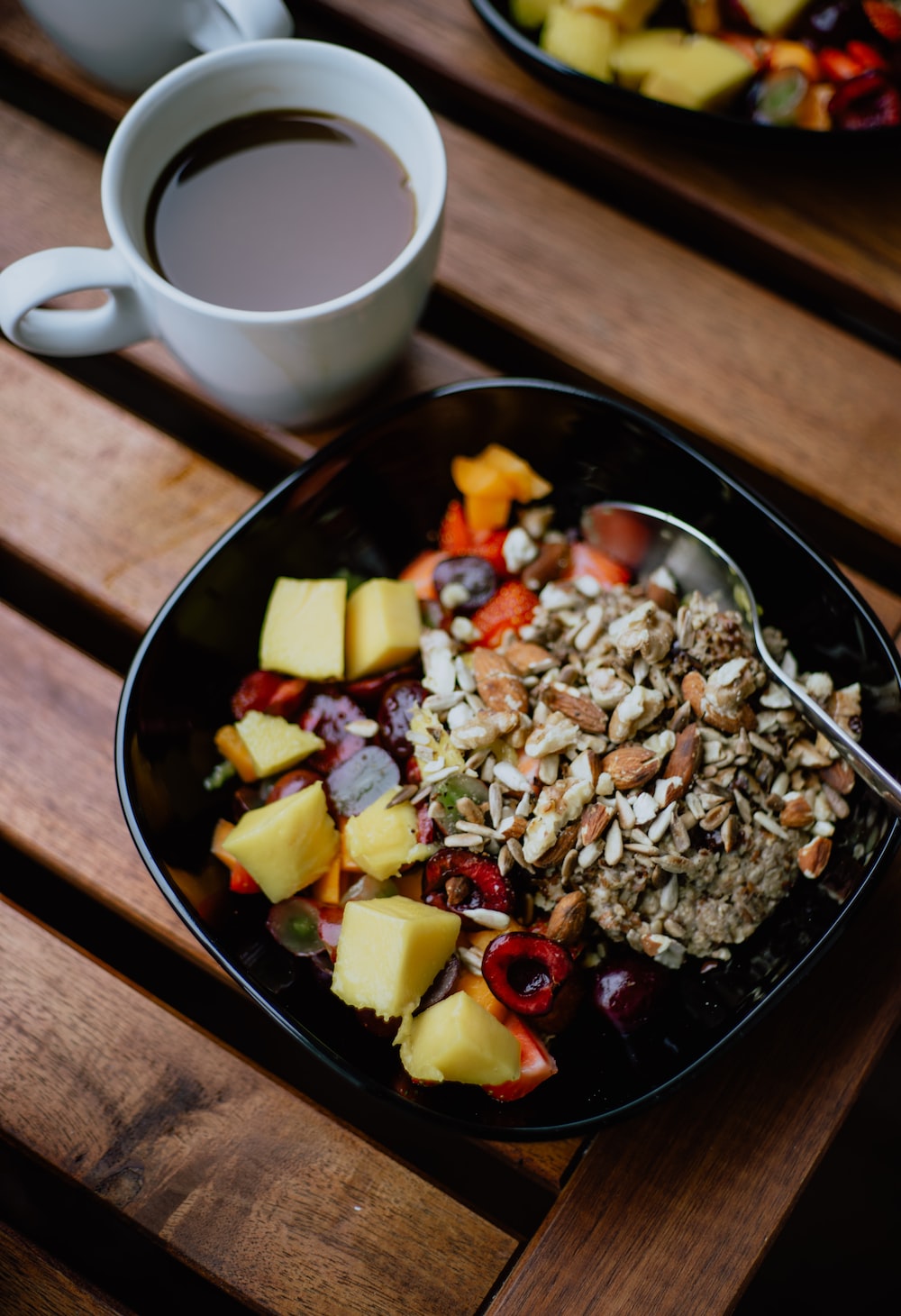Eating fiber-rich foods can provide many health benefits, including improved digestion and lower cholesterol levels. Eating fiber also helps you feel fuller for longer and can aid in weight management. Start getting these benefits today by making sure to include plenty of fiber in your diet. Examples of high-fiber foods include fruits, vegetables, legumes, nuts, seeds, and whole grains.
By eating fiber-rich foods, you can start to reap the benefits of better health today. Enjoy all the positive effects fiber can have on your body and mind.
Fiber is an important part of a healthy diet, and the best time to eat it is when it fits into your daily routine. Eating fiber-rich foods at regular meals and snacks helps keep you feeling full and satisfied throughout the day. To maximize the benefits of eating fiber, choose a variety of high-fiber fruits, vegetables, legumes, and whole grains.
For more information on the benefits of fiber and how to incorporate more into your diet, consult a healthcare professional.
High-Fiber Foods to Eat
Eating high-fiber foods can be beneficial to your health. High-fiber foods are rich in vitamins, minerals and other nutrients. They help keep you full for longer, regulate your blood sugar levels, and aid digestion. Some examples of high-fiber foods are legumes, beans, whole grains, fruits and vegetables. Incorporating these foods into your diet can help you reach your health goals.
Eating a balanced diet with plenty of high-fiber foods is the best way to ensure that you get the nutrition your body needs.
Best Time of Day to Eat Fiber

Eating foods rich in fiber is one of the best ways to maintain a healthy diet. While it is important to eat fiber throughout the day, eating it at certain times can be more beneficial than others. Studies show that the ideal time of day to eat fiber is in the morning hours. Eating fiber-rich foods early in the day can help regulate digestion and prevent weight gain. Eating fiber later in the day can also help you stay fuller longer and reduce cravings.
Health Benefits of Eating Fiber
Eating a diet rich in fiber has many health benefits. It can help reduce the risk of heart disease, diabetes, and certain types of cancer. Fiber also helps to regulate cholesterol levels and blood pressure, as well as keep you feeling fuller for longer. Fiber can also aid digestion and provide energy. Eating the recommended daily amount of fiber can improve overall health and wellbeing.
Fiber is found in a variety of foods such as fruits, vegetables, nuts, seeds, beans, and whole grains. Incorporating more of these foods into your diet can help you reach the recommended daily intake of fiber.
Including plenty of fiber in your diet can help maintain a healthy weight, reduce the risk of certain diseases, and keep your digestive system functioning properly.
How Much Fiber Should I Eat

Fiber is an important part of a healthy diet, and the recommended amount to consume daily varies depending on age and gender. Generally, adults should aim to get 25-38 grams of fiber per day. Eating fiber-rich foods such as whole grains, legumes, fruits, vegetables, and nuts can help you meet your daily fiber needs. Additionally, adding a fiber supplement can help you reach your goal. Eating a balanced diet with plenty of fiber can help you stay regular and reduce your risk of various health conditions.
Types of Fiber
Fiber is an important component of a healthy diet, providing many benefits such as improved digestion and increased energy. Types of fiber include soluble and insoluble fiber, both of which offer numerous health benefits. Soluble fiber dissolves in water and can help lower cholesterol levels, while insoluble fiber passes through the digestive system undigested and helps keep you regular. Eating a variety of foods that are rich in fiber can help ensure that you get all the benefits it has to offer.
Foods High in Soluble and Insoluble Fiber

Eating foods high in soluble and insoluble fiber help promote better digestion, regularity and gut health. Foods like beans, oats, fruits, vegetables, and whole grains are all great sources of fiber. Including them in your diet can help reduce cholesterol levels, control blood sugar levels and lower your risk of certain diseases. Eating fiber-rich foods can also help you feel fuller for longer, making it easier to maintain a healthy weight.
If you are looking to increase your dietary fiber intake, try adding more of these nutrient-rich foods to your daily meals.
Beans, lentils, nuts, and seeds are all great sources of soluble fiber. Fruits, vegetables, and whole grains are all good sources of insoluble fiber.
Adding more fiber-rich foods to your diet is an easy way to improve your overall health.
How to Increase Fiber Intake
Increasing your fiber intake is an important part of maintaining a healthy diet. Eating more high-fiber foods such as fruits, vegetables, legumes, nuts, and whole grains can help you stay fuller for longer, and can help you manage your weight. Additionally, fiber can help reduce cholesterol levels and may help prevent some forms of cancer. To get more fiber in your diet, try replacing refined grains with whole grain breads and cereals, adding fruits and vegetables to your meals, and snacking on nuts and seeds.
Fiber Supplements

Fiber supplements are a great way to get the important nutrients your body needs. They provide a variety of health benefits, including improved digestion, increased energy levels and weight management. Taking fiber supplements is an easy and convenient way to ensure you are getting enough of this essential nutrient.
Fiber supplements come in many forms, including capsules, powders, and tablets. It is important to choose the right supplement for your needs, as different types of fiber have different benefits. Different types of fiber can also provide different levels of nutrition.
Make sure to read the label carefully before taking any fiber supplement, and always consult your doctor if you have any questions or concerns.
